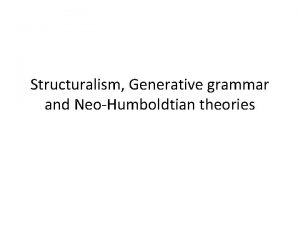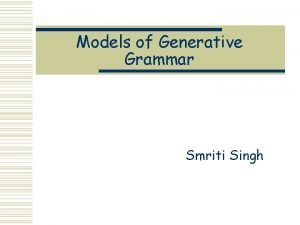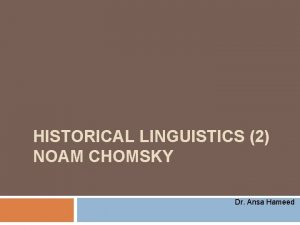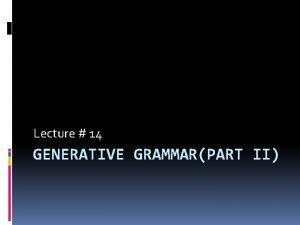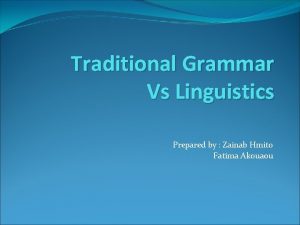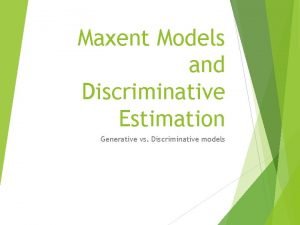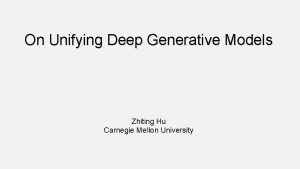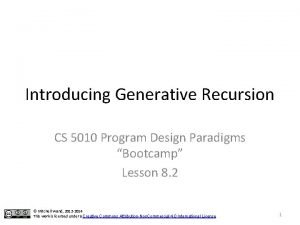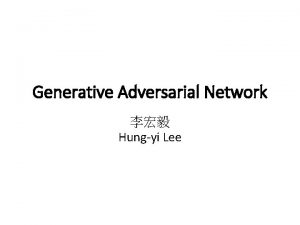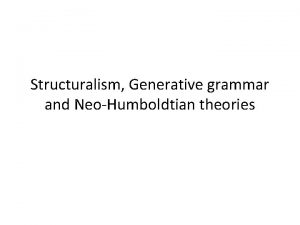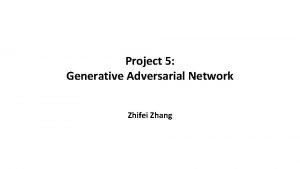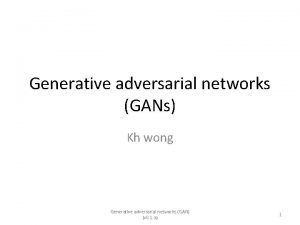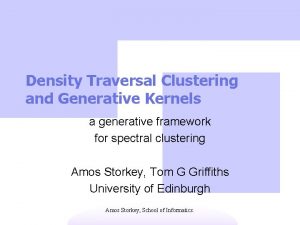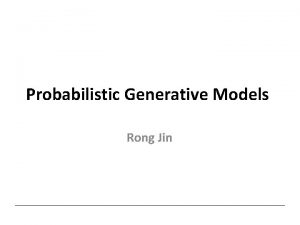Traditional Grammar VS Generative Grammar In traditional grammar








- Slides: 8

Traditional Grammar VS. Generative Grammar In traditional grammar, words are assigned to two different types of words named content words (lexical/substantive categories) and function words (functional categories). Beginning with the main lexical categories found in English, they are named noun, verb adjective, adverb and preposition. In addition to the lexical categories, English also has functional categories such as determiner, quantifier, pronoun, antecedent, and auxiliary…

• Example of the structure of sentences within traditional grammar. • “John smokes a specific brand of Cuban cigars imported by a friend of his from Havana. ” • In this sentence, “John” is a subject. Verb smokes serves the function of the predicate of the sentence. The complement is the phrase “Cuban cigars imported by a friend of his from Havana. ”

• In contrast to the taxonomic approach adopted in traditional grammar, Chomsky developed generative grammar. In theoretical linguistics, a generative grammar refers to a particular approach to the study of syntax. A generative grammar of a language attempts to give a set of rules that will correctly predict which combinations of words will form grammatical sentences. Also, It is a study of language acquisition. It explains why a baby speaker can acquire any languages. It aims explanatory adequacy. • In the generative grammar theory, Chomsky brought up a concept called universal grammar to explain why native speaker seems to “know” the grammar knowledge of his or her native language. It is the basis of grammar knowledge in babies’ brain and also it’s the innateness hypothesis for language acquisition in baby period.

• The theory of generative grammar leads us to consider the developing theory of language acquisition. Chomsky claims that the process of language acquisition is first experiencing the language, and then the acquisition is determined by a biologically endowed innate Faculty of Language. • At last, based on the experiences and FL, children learn the grammar of language. • This hypothesis of language acquisition is known as the innateness hypothesis. • Also, Chomsky suggested that there is a critical period for the acquisition of syntax. Critical period assumes that children can pick up any language within the age of 10 -12 without being taught.

Universal grammar • (UG) in linguistics, is theory of the genetic component of the language faculty, usually credited to Noam Chomsky. • The basic postulate of UG is that a certain set of structural rules are innate to humans, independent of sensory experience. • With more linguistic stimuli received in the course of psychological development, children then adopt specific syntactic rules that conform to UG. It is sometimes known as "mental grammar", and stands contrasted with other "grammars", e. g. prescriptive, descriptive and pedagogical.

• The theory of universal grammar proposes that if human beings are brought up under normal conditions (not those of extreme sensory deprivation), then they will always develop language with certain properties (e. g. , distinguishing nouns from verbs, or distinguishing function words from content words). • The theory proposes that there is an innate, genetically determined language faculty that knows these rules, making it easier and faster for children to learn to speak than it otherwise would be. • This faculty does not know the vocabulary of any particular language (so words and their meanings must be learned), and there remain several parameters which can vary freely among languages (such as whether adjectives come before or after nouns) which must also be learned.

• As Chomsky puts it, "Evidently, development of language in the individual must involve three factors: • (1) genetic endowment, which sets limits on the attainable languages, thereby making language acquisition possible; • (2) external data, converted to the experience that selects one or another language within a narrow range; • (3) principles not specific to the Faculty of Language. "

• Occasionally, aspects of universal grammar seem describable in terms of general details regarding cognition. • For example, if a predisposition to categorize events and objects as different classes of things is part of human cognition, and directly results in nouns and verbs showing up in all languages, then it could be assumed that rather than this aspect of universal grammar being specific to language, it is more generally a part of human cognition.
